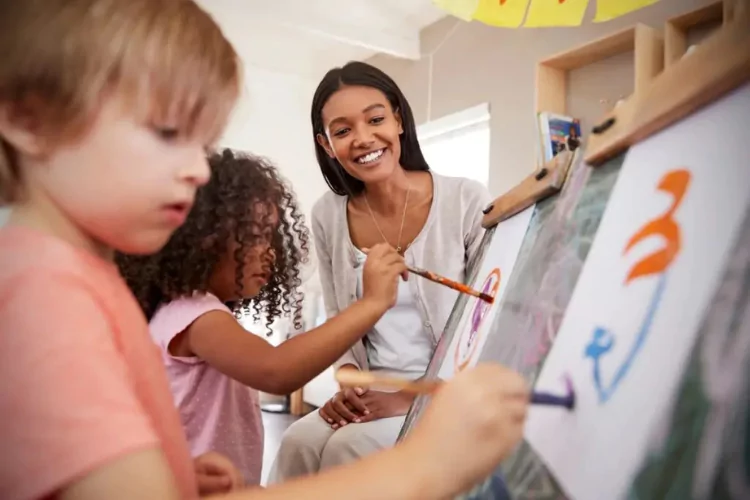Have you ever wondered whether an au pair could provide the right support for your child with special needs? Many families looking for childcare options find themselves asking this exact question. It’s a big decision, and the right information can make all the difference.
The short answer is yes, an au pair can often be an excellent addition to your family, offering personalized care, flexibility, and cultural exchange. But how do you know if this is the right choice for your family?
What Exactly Does an Au Pair Do?
An au pair from goaupair.com is a live-in caregiver from another country who provides childcare while becoming part of your family. Their role is more than just babysitting; they’re involved in day-to-day activities, from school runs to meal preparation, homework help, and even light housework.
For families with children who have special needs, this can extend to providing additional support like helping with therapies, managing routines, or creating a calm and stable environment. Importantly, au pairs can offer consistency, which is invaluable for children who thrive on routine.
Why Consider an Au Pair for a Child with Special Needs?
Finding the right care for a child with special needs can feel overwhelming. You want someone who not only understands your child’s unique requirements but also fits seamlessly into your family dynamic. Here’s where au pairs shine:
1. Flexibility: An au pair’s schedule is typically more adaptable than that of a nanny or daycare. If your child needs extra care during evenings, weekends, or school holidays, an au pair can adjust their routine to meet your family’s needs.
2. Cultural Enrichment: Welcoming an au pair introduces your child to new languages, traditions, and perspectives, which can be enriching for their development and social understanding.
3. Focused Attention: With fewer children to care for compared to a daycare setting, an au pair can dedicate more one-on-one time to your child.
4. Bonding and Stability: Because they live with you, au pairs often form close bonds with the children they care for, providing emotional support and stability.
5. Practical Support: Many au pairs are open to learning specific skills or therapies to better support your child’s needs. This willingness to adapt is a huge advantage for families navigating unique challenges.
What to Look for in an Au Pair for Special Needs Care
While au pairs are versatile, not every candidate will have experience with special needs care. That’s okay—what’s important is finding someone who’s willing to learn and is compassionate, patient, and adaptable.
When interviewing potential au pairs, consider asking questions like:
- What experience do you have with children who have special needs?
- How would you approach a challenging situation, such as a meltdown or sensory overload?
- Are you comfortable learning specific techniques or therapies my child may need?
- What strategies do you use to build trust with children?
You should also discuss your child’s specific needs in detail. This includes their daily routines, preferences, triggers, and any medical or therapeutic requirements. Being upfront ensures both you and the au pair know what to expect and can set clear expectations from the start.
Training and Support for Au Pairs
It’s worth noting that while some au pairs come with experience, many don’t have formal training in special needs care. However, this shouldn’t be a dealbreaker. Many families find that the right candidate is someone who’s open-minded, eager to learn, and genuinely interested in supporting their child.
You can provide training and resources to help them feel confident in their role. This might include:
- Sharing information about your child’s condition and what works best for them.
- Walking through daily routines and providing guidance on how to handle specific situations.
- Offering access to online courses or materials related to special needs care.
- Setting up regular check-ins to ensure they feel supported and can ask questions.
Building a Strong Relationship
The key to success with an au pair is building a strong, collaborative relationship. You’re not just hiring someone; you’re welcoming a new member into your family. Taking the time to create a positive environment helps everyone thrive.
Make sure to:
- Communicate Clearly: Regular, open communication is essential. Share feedback, discuss concerns, and celebrate successes together.
- Set Boundaries: While an au pair is part of your family, it’s also important to respect their personal time and space.
- Show Appreciation: A little gratitude goes a long way. Letting them know they’re valued fosters a sense of mutual respect and motivation.
Is an Au Pair the Right Fit for Your Family?
While au pairs bring many benefits, they’re not a one-size-fits-all solution. Think about what works best for your family dynamic, your child’s needs, and your lifestyle. Are you comfortable with someone living in your home? Are you prepared to guide and support them as they settle into their role?
It’s also worth considering the legal and logistical aspects, such as visa requirements, au pair program rules, and host family responsibilities. These vary depending on your location, so make sure you’re clear on the details before starting the process.
A Support System That Can Make a Difference
For families with children who have special needs, the right au pair can provide more than just practical help. They can offer companionship, consistency, and a fresh perspective. With the right preparation and open communication, an au pair can become an invaluable part of your support system, enriching your family’s life in ways you might not expect.

Mark Thompson, a seasoned pest controller, is renowned for his expertise in keeping homes and businesses free from unwanted intruders. With a passion for environmental sustainability and a deep understanding of pest behavior, Mark has become a trusted authority in the industry.
